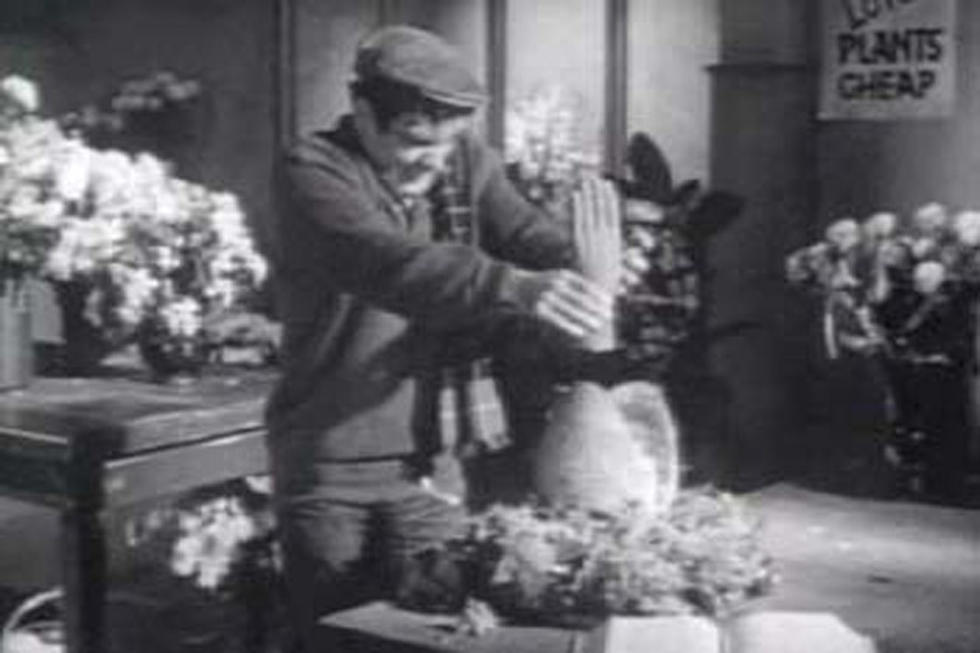
It Came From the Cultosphere: ‘Five Star Final”s Pre-Code Sin and Scandal
If you think all old movies are squeaky clean tales from a kindler, gentler time, you don't know about the pre-Code era. Named after the time before Hollywood began enforcing its own Production Code, it lasted from the late '20s to 1934, and revealed just how wild the studios could be when the censors weren't paying attention.
Though it's not as famous as some other pre-Code classics, 1932's 'Five Star Final' is a perfect example of this anything-goes era, offering a jaw-dropping look at a New York tabloid and the lives it ruins.
The great Edward G. Robinson (same year he became a star with the gangster classic 'Little Caesar') stars as Randall, the managing editor of the Gazette, the sleaziest paper in town. Pressured by Hinchecliffe, a hypocritical owner/publisher, and a sleazy duo of circulation and advertising weasels, Randall drops the serious news he was printing ("cables from the League of Nations!" the circulation weasel complains) and goes for all-out trash.
He revisits the story of (acquitted) murderer Nancy Vorhees Townsend (Frances Starr) 20 years later, catching up with her now that she's managed to conceal her past and is celebrating the impending marriage of her own daughter.
First, Randall has a reporter (Boris Karloff, the same year he made 'Frankenstein') imitate a minister to dope out some information from the former Nancy Vorhees and her husband (H. B. Warner, a.k.a. Mr. Gower the druggist from 'It's A Wonderful Life') who, the movie takes pains to point out, is not the biological father of her daughter. For shame!
Karloff learns of the marriage, and Randall splashes it all over the front page just in time for the wedding, which is immediately called off by the fiancee's snobby parents. Nancy is so distraught that she kills herself, and Dad soon joins her. Then another "reporter" Randall hired (this one a former hooker played by around-the-block-looking Ona Munson) breaks into their apartment and has a photographer snap pictures of the dead bodies before anyone calls the police. Randall, naturally, splashes those photos over the front page in time for the Five Star Final edition.
This leaves the daughter, Jennie (Marian Marsh), on the verge of suicide herself. But she chooses attempted homicide instead and barges in on the bigwigs of the Gazette just as they're congratulating themselves on the jump in circulation, then figuring since Jennie has nothing else, she'll gladly take a pittance to sell them the rights to make up whatever "authorized" story they want about her dead mother.
Holding them at gunpoint, Jennie demands they answer her question: "Why did you kill my mother?" For most of the movie, Marsh (only 17 at the time) just has to look pretty, but for this scene, she really cuts loose, screaming at the newspaper men how their papers seem to know everything -- from how to end the war to how to raise a baby to what length skirts should be -- and now she wants to know "how to raise my mother from the dead!" It's powerful stuff.
Being a pre-Code movie, 'Five Star Final' manages to include some wild content. When Munson applies for a job, Randall's secretary tells a copy boy that she's sure to get it: Turns out the last girl was fired because she was "flat chested." She then makes an elaborate gesture to indicate that Munson has a suitable rack for newspaper work.
When the paper's contest editor Ziggy Feinstein (!) is describing his plans for a taxi race as a circulation stunt (everyone agrees it'll kill at least 100 people, but everyone also agrees it's a swell idea), he tells his city hall crony that he's "gonna let an Irishman, a Jew and a wop win" -- holy cow!
Best of all is the big ending, after Randall finally tells off the publisher and quits. He gets one last call from the city desk about a horrible murder/suicide and starts back down the old path, raving about how they can fill the front page with photos, use banner headlines, etc. Then, he tells the editor how he's quitting, and says he doesn't care what they do with the story -- and if Hinchcliffe doesn't like that, he can "shove it up his ..." with the sound of the phone being thrown through a glass door taking the place of the last word.
Still think all old movies are squeaky clean?
More From Diffuser.fm









